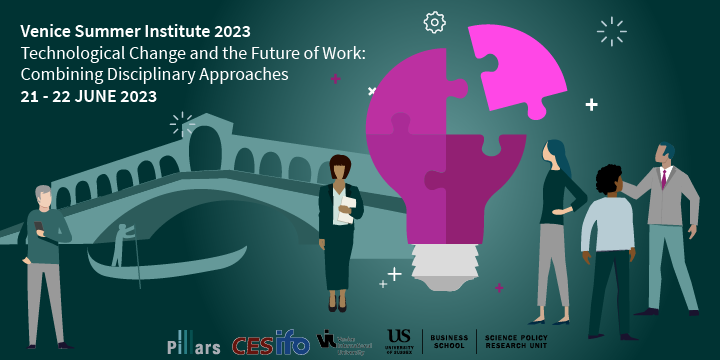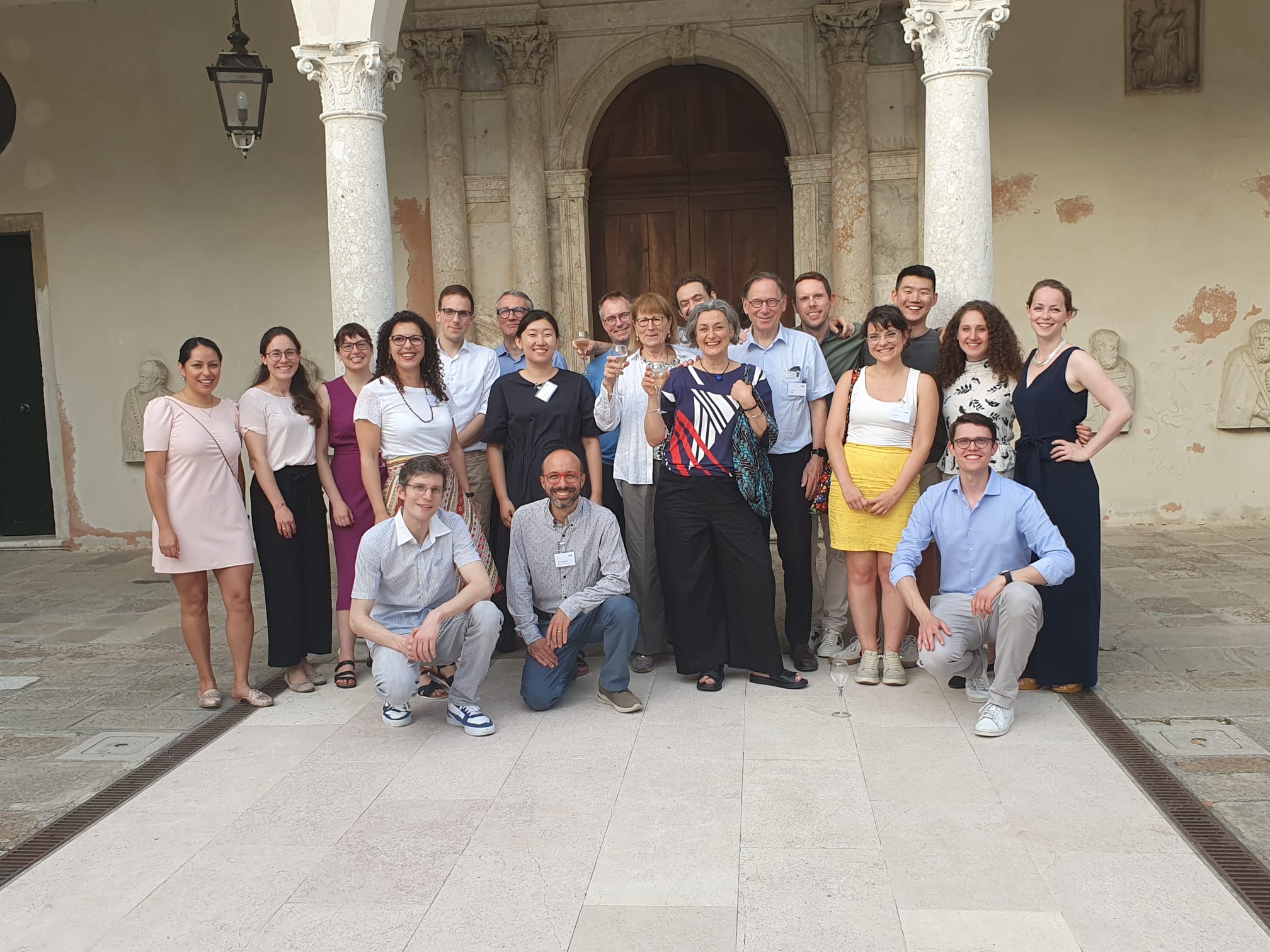Technological Change and the Future of Work: Combining Disciplinary Approaches
Venice Summer Institute, 21 and 22 June 2023
Pillars was written in 2019, submitted in 2020 and awarded at the end of 2020. In digital technology timing, this is an era ago!
Since then, AI has unfolded unprecedently and challenged us even more intriguingly.
Regardless the speed and the shape of these technological advances the main challenge is to predict changes and make sure that labour markets are ready to embrace them.

SPRU has been a very first mover with respect to interdisciplinarity to tackle the so-called societal challenges – Chris Freeman its founder has made a career of excellent, and policy relevant research and we try to follow the tradition. ifo on its part is an excellence centre on labour markets and skills. CESifo with its annual Venice Summer Institute on the island of San Servolo provided the perfect setting for the workshop.
The aim of this workshop was to spark academic discussions on how to tackle the future of work through a combination of disciplinary approaches.
“Technology and the Future of Work: A Policy conundrum” – main takes of the plenary
The first introductory notes were in the form of a dialogue between two reputed innovation economist and sociologist of digital work, who debated the following issues.
- How do economics of innovation and sociology articulate the nuances of the "Future of Work"?
- Is this time different with respect to previous technological waves? In what ways?
- How are emerging digital automation technologies affecting the intrinsic human nature of work? What is left of human creativity?
- Are aspects of mental health and workers' "wellbeing" sufficiently considered in current research and policy agendas?
- How can policy makers and regulators identify and “steer" next phases of digital technologies in ways that do not hamper progress and yet mitigate side effects on human labour?
- How can we support younger generations to work towards increasing their awareness on how to make AI (for instance) functional to a just twin transition?
The main takes emerging from the session:
- Sociology can rely on socio-technical imaginaries, science fiction, science, and technology studies to look at workplaces and the effect of technology on individuals and their relations with machines.
- Technical change and employment are an age-old debate and there have always been dystopian or utopian expectations on technology. It is not only about job loss but also job quality and wellbeing.
- The interest is in the time use effects of technology adoption: algorithmic management of work will scale up modern surveillance, track performance, peer control. The future of work is data driven and concentrated.
- Economics of technical change has focused on employment since several decades.
- The hype on Artificial Intelligence occurs exactly when pressure on labour costs is mounting, and the recent wave of generative AI will be interesting to look at, particularly in terms of crave for regulation.
- AI is revolutionising creative work and time saving, though some services are still insensitive to time saving effects and will remain time intensive.
- Trustworthiness is becoming a scarce resource and will affect labour markets.
- Finally, competition policy must change and become less narrow, and the European regulatory framework should remain central, particularly within context of increasing digital trade.
Academic presentations and main takes from discussion
The structure of the workshop reproduced the main pillars of the project and puts together different approaches to unpack each of them:
- Concept of exposure to emerging digital technologies (economist of technical change and historians)
- European comparative evidence on technological cycles and effects on employment levels and compositions (labour economists and data scientists)
- The role of skills and skill complementarities (economists of technical change, labour economists and sociologists)
- The role of firms and workers behaviours (data producers, data scientists, experimentalists, ethnographic scholars)
The sessions sparked a very lively debate on findings and methods to look at phenomena in the labour markets. The main keyword of the sessions has been “going granular” in what the future of work might entails:
- Go granular on technologies, technology exposure, tasks, team’s reconfiguration at the level of firms, workers expectations identified in the Delphi Survey carried out in PILLARS.
- A major focus on complementarity of tasks, and workers, and tacit knowledge is needed, to steer education policies and training on the job that favour a complementarity and coordination premium.
- Involve different stakeholders in explaining and reimagining the use of technologies, including looking historically at actors who have resisted the introduction of technologies or actively shaped their evolution.
- Use innovative methods to measure exposure, relevance of technology and innovative econometric specifications to assess the impact on labour markets.
- Use of experiments is useful to test the effects of adoption of technologies on workers wellbeing.
